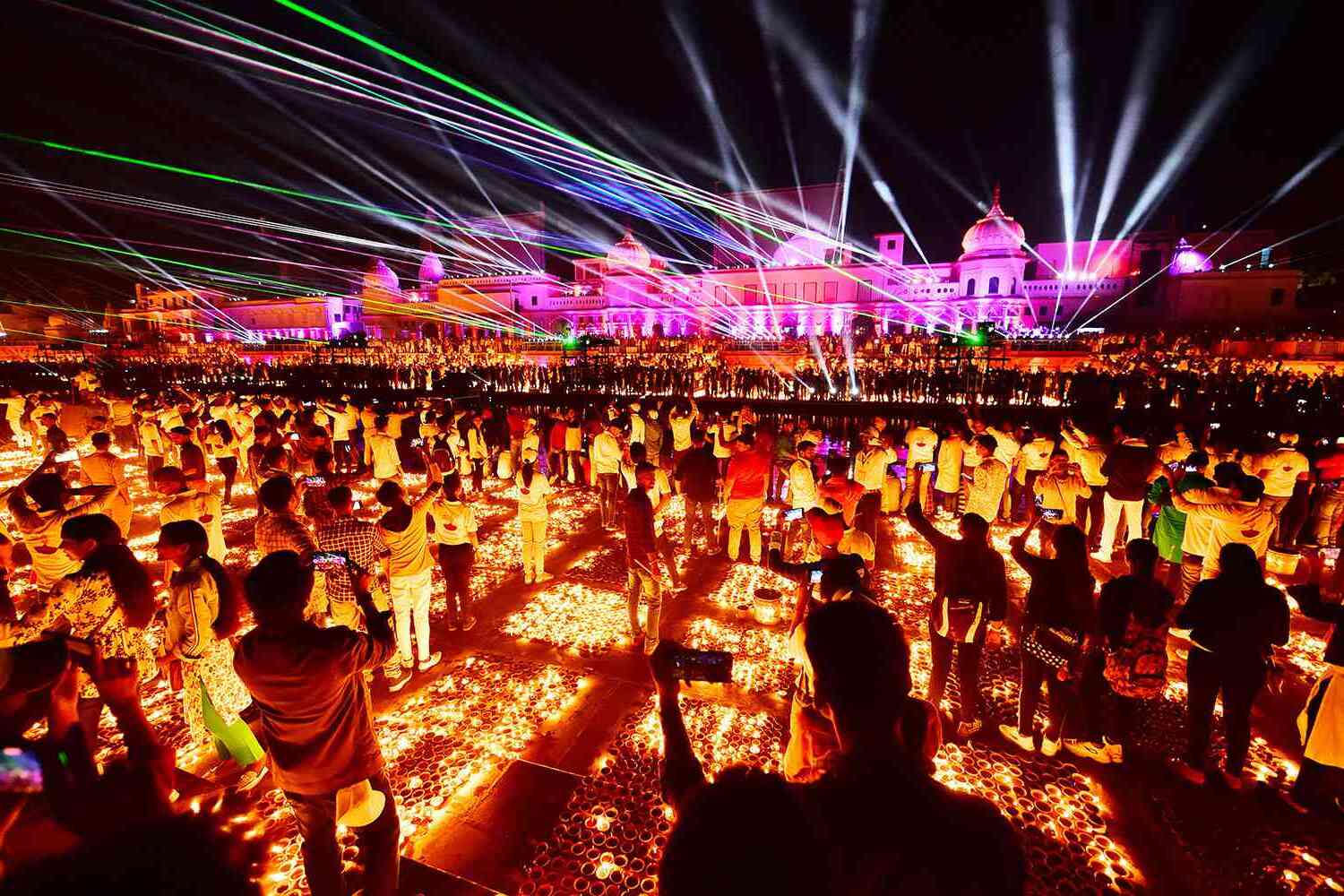
Diwali, also known as the Festival of Lights, is one of the most celebrated festivals in India and around the world. This vibrant festival marks the victory of light over darkness and good over evil. Diwali is celebrated with great enthusiasm, featuring dazzling fireworks, colorful rangoli designs, and the lighting of oil lamps called diyas. Families come together to share sweets, exchange gifts, and perform traditional rituals. The festival spans five days, each with its own significance and customs. From the story of Lord Rama's return to Ayodhya to the worship of Goddess Lakshmi, Diwali is rich in history and tradition. Curious about more? Here are 30 fascinating facts about Diwali that will illuminate your understanding of this joyous occasion.
What is Diwali?
Diwali, also known as Deepavali, is one of the most significant festivals in India. Celebrated by millions of Hindus, Sikhs, Jains, and Buddhists worldwide, it symbolizes the victory of light over darkness and good over evil.
- Diwali means "rows of lighted lamps" in Sanskrit.
- The festival spans five days, each with its own significance.
- It marks the return of Lord Rama to Ayodhya after 14 years of exile.
- Diwali is also associated with the goddess Lakshmi, the deity of wealth and prosperity.
- The festival usually falls between October and November, based on the Hindu lunar calendar.
How is Diwali Celebrated?
Diwali celebrations are vibrant and diverse, reflecting the rich cultural tapestry of India. Each region has its own unique traditions and customs.
- Homes are cleaned and decorated with rangoli, intricate patterns made from colored powders or flowers.
- Oil lamps, known as diyas, are lit to symbolize the triumph of light over darkness.
- Fireworks and firecrackers are a common sight, believed to ward off evil spirits.
- Families exchange gifts and sweets, fostering a sense of community and togetherness.
- Special prayers, or pujas, are performed to honor deities and seek blessings.
Diwali Around the World
Diwali is not just confined to India; it is celebrated with great enthusiasm in various countries, each adding its own flavor to the festivities.
- In Nepal, Diwali is known as Tihar and includes worshipping animals like cows and dogs.
- In Malaysia, the festival is called Hari Diwali and is a public holiday.
- In Trinidad and Tobago, Diwali is a national holiday, celebrated with cultural shows and fireworks.
- In the United Kingdom, cities like Leicester host grand Diwali celebrations with lights, music, and dance.
- In the United States, Diwali is celebrated in many communities, often with public events and cultural programs.
The Significance of Diwali
Diwali holds deep spiritual and cultural significance, embodying various themes and teachings.
- It represents the victory of good over evil, as depicted in the Ramayana.
- The festival signifies the end of the harvest season in India.
- Diwali is a time for self-reflection and spiritual renewal.
- It encourages the practice of charity and generosity.
- The festival promotes unity and harmony among different communities.
Diwali Foods and Sweets
Food plays a central role in Diwali celebrations, with a variety of delicious dishes and sweets prepared for the occasion.
- Sweets like ladoos, barfis, and jalebis are popular during Diwali.
- Savory snacks such as samosas and pakoras are also enjoyed.
- Traditional dishes vary by region, including South Indian murukku and North Indian chole bhature.
- Many families prepare special festive meals, often vegetarian, to mark the occasion.
- Sharing food with neighbors and friends is a common practice, fostering a sense of community.
Environmental Concerns
While Diwali is a joyous occasion, it also raises some environmental concerns, particularly related to pollution.
- Firecrackers contribute to air and noise pollution, affecting health and the environment.
- Efforts are being made to promote eco-friendly celebrations, such as using green crackers.
- Many people are opting for LED lights instead of traditional oil lamps to save energy.
- Campaigns encourage the use of natural materials for rangoli and decorations.
- Awareness about reducing waste and recycling is growing, making Diwali celebrations more sustainable.
Diwali's Lasting Impact
Diwali isn't just a festival; it's a celebration of light, hope, and unity. This five-day event brings families together, strengthens community bonds, and reminds everyone of the triumph of good over evil. From lighting diyas to sharing sweets, each tradition holds deep meaning and fosters a sense of belonging.
The festival's significance goes beyond religious boundaries, making it a time for everyone to reflect on their own lives and strive for betterment. The vibrant colors, mesmerizing fireworks, and joyous gatherings create memories that last a lifetime.
Understanding these 30 facts about Diwali helps appreciate the rich cultural heritage and the universal messages it conveys. Whether you're celebrating with loved ones or learning about it from afar, Diwali's essence of light and positivity can inspire and uplift anyone. So, embrace the spirit of Diwali and let its light shine in your life.
Was this page helpful?
Our commitment to delivering trustworthy and engaging content is at the heart of what we do. Each fact on our site is contributed by real users like you, bringing a wealth of diverse insights and information. To ensure the highest standards of accuracy and reliability, our dedicated editors meticulously review each submission. This process guarantees that the facts we share are not only fascinating but also credible. Trust in our commitment to quality and authenticity as you explore and learn with us.


